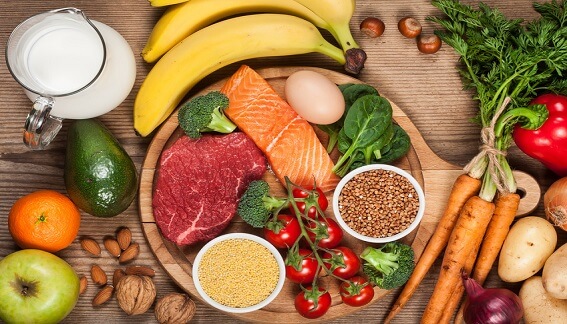
Advanced cancer: nutritional advice improves quality of life and prolongs survival
Protein, energy and omega-3 are three key elements in nutritional therapy for advanced cancer.
Although there are more and more cases of cancer, the death rate from cancer is falling, a sign that medical care has improved in the last ten years. However, the survival rate for advanced cancer patients has not changed. Compliance and tolerance of treatment are low. It is therefore important to pinpoint the reasons for intolerance to treatment and low effectiveness of treatments to improve medicine delivery and reduce its impact on quality of life. Malnutrition is one of the factors. Last December, a conference hosted by the Nutrition Society addressed the subject and published the proceedings this summer.
Malnutrition and cachexia, two factors of a negative prognosis
The prevalence of malnutrition increases with the advancement of the cancer to the extent that some 60% of patients with advanced cancer are malnourished. Their state considerably alters their chances of survival and increases the toxicity of treatment. This is probably due to a reduction in energy and protein intake associated with a change in metabolism and increased inflammation, both of which are characteristic of the pathogenesis of wasting.
What nutritional support?
Nutrition is rarely used as a lever in anti-cancer treatment, probably because many cancer patients are overweight and because nutrition is not part of the oncologist’s tool box. However, nutritional treatment should be started as early as possible to prevent post-diagnosis weight loss. Nutritional support should be part of a patient’s course of treatment and should take account of critical periods such as psychological discomfort, surgical stress, inflammatory response to chemotherapy and mucositis that can cause nutritional imbalance.
The aim of nutritional support is to minimise the impact of these critical periods (hypermetabolism and loss of appetite) and aid recuperation between two catabolic events. Nutritional care should be undertaken as early as possible, target overall weight and muscle mass and be maintained over time. Addressing energy and protein intake is the key to obtaining clinical effects. The use of long chain omega-3 active nutrients with proven anti-inflammatory effects can also help improve the efficiency of anti-cancer therapy.
With what results?
Clinical studies reveal that patients considered high-risk from a nutritional point of view have a lower survival rate. Those who receive support earliest live longest. According to data, increasing weight and curbing muscle wasting (cachexia) improves the survival rate.
In stage 3 cancer of the colon, physically active patients with a healthy weight who eat vegetables are more likely to survive. Administration of energy and protein supplements at an early stage, combined with modulators of inflammatory response (omega-3s) have a positive bearing on the nutritional status and clinical consequences of patients undergoing chemotherapy. This is reportedly thanks to weight gain and the modulation of the inflammatory response to chemotherapy by omega-3, which restore the patient’s anabolic ability and make cancerous cells more vulnerable.
When used early, nutritional therapy improves quality of life and can prolong survival.
Nutrition support and clinical outcome in advanced cancer patients. Laviano A, Di Lazzaro L, Koverech A. Proc Nutr Soc. 2018 Jul 13:1-6. https://doi.org/10.1017/S0029665118000459